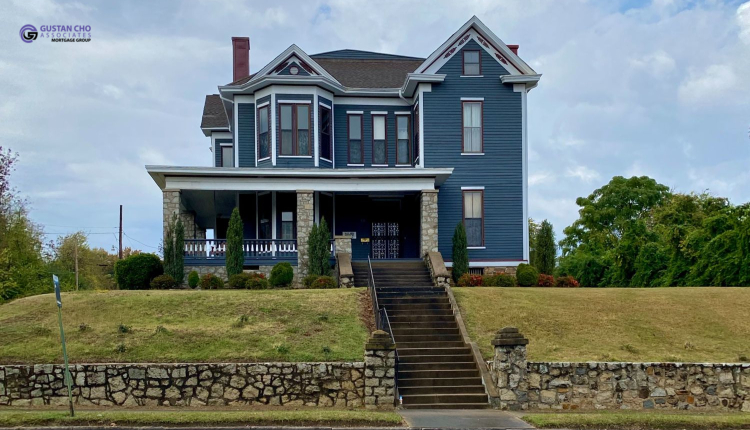This Article Is About Everything You Need To Know About Non-QM Mortgages
Gustan Cho Associates are experts in all areas of mortgage lending. The mortgage industry is a highly competitive and confusing space. The COVID-19 coronavirus outbreak has further convoluted the waters with mortgage lending guidelines. While many lenders were forced to add additional lender overlays to their mortgage programs, we did not experience that change. We did lose many of our NON-QM mortgage products at the start of the pandemic, but we are slowly getting those programs back. In this blog, we will detail everything you need to know about non-qualified mortgage lending and how it may help you purchase or refinance a property.
Everything You Need To Know About Non-QM Mortgages: Non-QM Loans Explained
If you follow our blogs, you may already be familiar with NON-QM mortgage lending. If you are new to our website, this article is for you. First, it is important to understand what a NON-QM mortgage loan means. The term NON-QM stands for “non-qualified mortgage”. A qualified mortgage (QM) at its simplest form is any mortgage program that the government has control over. This includes Fannie Mae, Freddie Mac, the U.S. Department of Housing and Urban Development (HUD), and the U.S. Department of Agriculture (USDA). The U.S. Department of Housing and Urban Development encompasses all FHA and VA mortgage loans. After the real estate meltdown in 2008, the United States government took control of these agencies, and for good reason. Mortgage lending was the wild wild west back in those days. Many consumers did not understand they were in adjustable-rate mortgages and found themselves unable to afford their homes when their payments substantially increased. This led to a spike in short sales and foreclosures across the nation. We all know housing values took a nosedive. To prevent this from happening again, the federal government stepped in and standardized mortgage guidelines. Now that we understand what a qualified mortgage means, a NON-QM mortgage loan simply means a non-qualified mortgage. A lender may offer a program that does not comply with the qualified mortgage lending guidelines. These investors lend their own money and are able to create their own lending criteria/ guidelines.
Types Of Non-QM And Non-Traditional Mortgages At Gustan Cho Associates
What type of NON-QM mortgage loans are available? Non-QM loans are non-traditional loans available for a primary home, second home, and investment property financing. Not everyone has a traditional w2 income job. Some people are self-employed, others are business owners, and other are retired individuals with no regular income. Many wealthy individuals live off their assets and do not need to declare a lot of annual income on their income tax returns. Entrepreneurs often hustle from one project to another and may need to qualify for a no-income documentation mortgage loan. Whatever the situation, Gustan Cho Associates has the loan program suited for every type of individual homebuyer.
Below, we will go over the types of non-QM and alternative mortgage loan programs available at Gustan Cho Associates. We will list the most common NON-QM mortgage programs and a brief description of each program.
Everything You Need To Know About Non-QM Mortgages: Bank Statement Mortgages
Bank statement mortgages for self-employed borrowers are the most common type of NON-QM mortgage loan. These products are geared specifically for self-employed borrowers who may not qualify for a mortgage based on how they file their federal income taxes. It is no secret that many self-employed borrowers are utilizing write-offs on their IRS tax returns. These write-offs count against you when it is time to get a mortgage loan. That is why these bank statement programs are so popular. A NON-QM bank statement program will utilize your previous 12 or 24 months of bank statements (personal or business accounts) to calculate your income. An underwriter will use your business-related deposits as your qualifying income. The general rule of thumb is an underwriter will count 50% of your total business-related deposits as income and the other 50% as business expenses. For most borrowers seeking this mortgage program, 50% of total deposits will give you more qualifying income than your federal tax returns. These programs are available for self-employed borrowers who have been in business for a minimum of two years. The credit score requirements start with credit scores all the way down to 600. With strong credit, you only need a 10% down payment to utilize a NON-QM bank statement loan. Since these loans are so popular, we encourage you to reach out to our team to go over your specific situation.
Everything You Need To Know About Non-QM Mortgages: Home Loans For Independent Contractor Wage Earners
1099 mortgage loan program for 1099 wage earners:
Workers who are employed at companies and/or businesses are generally W2 income wage earners. However, some people are 1099 wage earners. 1099 wage earners are more scrutinized by lenders when applying for a mortgage.
Many 1099 employers are technically self-employed or independent contractors and will run into similar issues when using IRS tax returns to qualify for a mortgage. There are NON-QM mortgage programs that will utilize your 1099 income without getting your tax returns involved. These programs follow similar requirements as the bank statement mortgage programs. Many independent contractors will benefit from utilizing these programs when they are not able to qualify for a standard mortgage program.
Mortgage Loan Programs For Wealthy Borrowers With No Traditional Income

Asset depletion mortgage loan programs with no income tax returns required.
An asset depletion mortgage loan program will utilize your overall liquid assets as qualifying income. Many borrowers are sitting on a substantial chunk of assets but show very little income and are unable to qualify for a standard mortgage. That is when an asset depletion program can greatly benefit individuals in the situation. An asset depletion program will utilize a portion of your total liquid assets as qualifying income. The funds typically need to be in a checking account, savings account, retirement account, or other verifiable assets such as a money market account. The underwriter will then use a portion of these assets and divide that amount by 60 months for the most aggressive asset depletion programs. Some asset depletion programs require total qualifying assets to be divided by 240 or even 360 months. Since there are many different NON-QM asset depletion programs, email your scenario to gcho@gustancho.com or call (800) 900-8569.
Everything You Need To Know About Non-QM Mortgages: Debt Service Coverage Ratio
Debt Service Coverage Ratio or investor cash flow loan programs.
Debt Service Coverage Ratio or Investor Cash Flow Loan Programs are highly sought after by real estate investors as they are only available on investment properties. These programs allow the rental income on the property to be used to qualify for the mortgage. As long as the fair market rent or current lease on the property generates more cash flow than the total mortgage payment, these loans are available to you. These programs sometimes have some more strict credit score requirements but do not require federal tax returns or any profit and loss statements to qualify. These mortgage programs are considered low documentation mortgages and are very easy to obtain. Many real estate investors love these programs because of the minimal documents required in the process.
No-Doc Mortgages For Primary Residence
What about a no documentation mortgage loan? We have not seen a true NO DOCUMENTATION program for quite some time, they are now rolling back out.
Gustan Cho Associates now offer no-doc loans for primary owner-occupant homes, second homes, and investment properties. This is the first time no-doc home loans are back in the market since the 2008 financial crisis. No-doc mortgages mean that no income documentation is required. No-documentation mortgages and stated income loans were extremely popular prior to the 2008 real estate and mortgage meltdown. The minimum credit score required is 640 FICO. However, a minimum of 3 to 18 months of reserves is required. Borrowers with 720 credit scores or higher require 3 months of reserves. If your credit scores sit at 640 FICO, 18 months of reserves are required. The down payment and closing costs can get gifted. However, the reserves need to be the borrower’s own funds. No-documentation mortgages at Gustan Cho Associates will no doubt hands down be one of the most loan programs in the coming weeks. Non-QM loans will open up many doors for potential homebuyers in this booming housing market. As Gustan Cho Associates gain access to a no-document mortgage loan, we will provide more information and requirements in the next few days to a few weeks.
If you feel a NON-QM mortgage product may fit your situation we encourage you to reach out to Gustan Cho on (800) 900-8569. Gustan is also accessible via email at gcho@gustancho.com. There are numerous different NON-QM programs we have access to. Each NON-QM investor has slightly different requirements. Even if you have had a recent bankruptcy or foreclosure, there may be a NON-QM mortgage product available for you. Please reach out to the NON-QM experts today!

